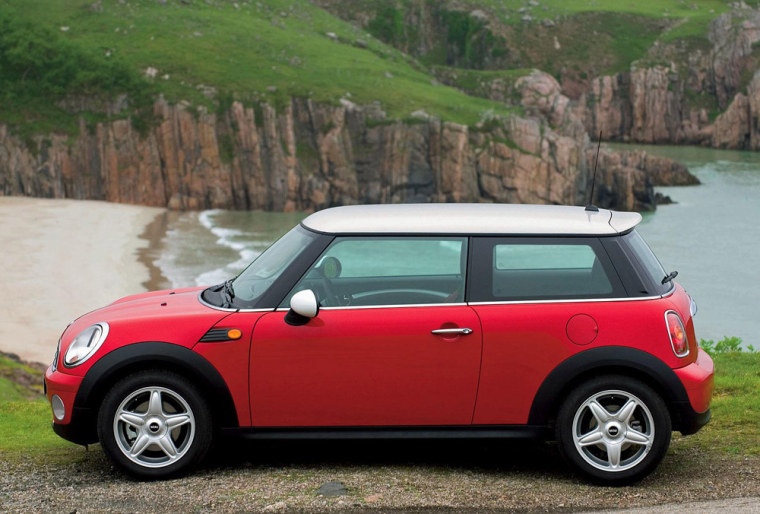BMW has announced plans to begin testing electric powertrains in its Mini brand vehicles.
Several hundred Minis are currently being built at the company factory in Oxford, England, and will then be shipped to Munich, Germany, to receive electric powertrains, according to a statement from BMW Group.
BMW will use electrically driven Mini test vehicles to refine alternative-fuel technology and assess its future potential for mass production, the statement said. BMW representatives did not respond to requests for comment.
Automotive News Europe reported that 490 of the Minis will be leased in California and 10 will be used as show cars.
Jennifer Watts, a spokesperson for the Washington-based Electric Drive Transportation Association, said that although she had no prior knowledge about the impending announcement from BMW, it wasn’t totally unexpected.
“They were sort of going under the radar, but it’s not a huge surprise,” Watts said. Depending on how the field tests go, the electric Mini could be an important step for electric cars in general, she added.
“We hope the tests go well,” Watts said. “The more players in the game, the better. It helps bring the cost down, and it helps make electric vehicles accessible, so we’re glad to hear the news.”
BMW's announcement comes relatively late, compared to other manufacturers. Ford, General Motors, Honda, Mercedes-Benz, Mitsubishi, Nissan, Peugeot-Citroen, Renault, Subaru, Toyota and Volkswagen, among others, have already announced plans to develop and test electric vehicles.
Aaron Bragman, a research analyst for Global Insight in Detroit, said he expects the Mini electric cars to be used mostly to test the market in California.
“Frankly, I think it’s going to be wildly popular,” Bragman said, noting that the gas-fueled Mini Cooper has virtually sold out in California and elsewhere. “The market is just there.… There are people desperate to get these vehicles.”
Bragman said he would expect an electric Mini to command a roughly $10,000 premium over the standard Minis now available. The “assurance and guarantee” of buying a BMW-made electric car, as opposed to an electric car from an obscure manufacturer or developed as an after-market electric vehicle without a warranty, will be a big draw for would-be owners, he said.
Watts said BMW's brand caché certainly won’t hurt sales, either, even if it doesn’t necessarily aid them.
“It is a well-known car,” Watts said. “So far, this has had a good impact. So if BMW joins the game too, that’s great.”
BMW relaunched the Mini brand in 2001. Models have been available in the United States since 2002. The Cooper is now in its second generation; the Cooper Convertible is expected to be redesigned soon. An extended Cooper Clubman version debuted this year, and the high-performance John Cooper Works models follow for 2009.
The Mini brand dates back decades, when it was owned by the British Motor Corporation and popularized in the 1960s and ’70s.
Further details about the possibility of an electric-powered Mini and its marketing will be released by the end of the year, according to BMW press statements.
